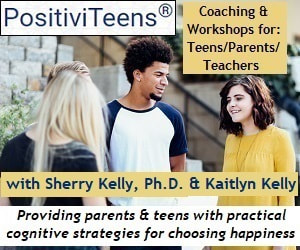2022 "FOCUS ON YOUTH":
FEATURED EMERGING ARTIST
Proud Sponsors of Focus on Youth 2022
Filmmaker:
Sarah Reyes
~~~
|
Sarah Reyes is a writer, filmmaker and graphic designer operating out of South Austin, Texas. Fueled by a lifelong passion for storytelling, Sarah has been a finalist in over 14 national film festivals, winning two international film festivals since her induction to the film scene in late 2020.
Her first film, It's Getting Bad Again, debuted at the SXSW 2022 Film Festival, where it received a Jury Recognition for artistic expression in the Texas High School Shorts competition. Reyes was accepted into Sarah Lawrence College where she plans to pursue creative writing and film studies. Irony
By Sarah Reyes
|
|
Watch Sarah's Short Film It's Getting Bad Again Below
|
Sarah discusses her thoughts on mental illness, the effects of the COVID-19 pandemic on her peers, and art as a healing outlet.
Unfortunately, there is still a stigma surrounding mental illness. What did you hope to accomplish with your film? Did you want to educate the public?
I don’t think I created this film with the intent to educate the public. The film, which is less than five minutes total, does not explicitly detail the mental illness the protagonist struggles with. And while I think you can write a social commentary on mental health without narrowing your thesis to one mental illness, I designed this film to spark a conversation on an overlooked matter regarding mental illness episodes – recovery.
Entertainment and news media outlets have a pervasive need to romanticize mental illness to young audiences, but there is a significant absence of information (or perspective) when it comes to recovery. I do not believe mental illness is beautiful. I do not believe mental illness should be glamourized. But there is hope and optimism to be found in the reality that recovery is possible for those struggling with mental illness. Providing a medium that explores options and resources for those navigating a journey to recovery is the most important factor that should be considered when creating artwork centered on mental illness. If you’re able to educate along the way, that’s everything filmmakers can hope for. Being authentic to your truth, refusing to censor the details society deems taboo, and extending a sensitive hand to your audience creates more impact than a work that is strictly informational. If nothing else, I hope this is a takeaway.
The film's theme is particularly important today. Statistics are showing that a high percentage of our youth have suffered from depression during the height of the
pandemic and beyond due to isolation and fear of the unknown. What are your feelings, and have you spoken to others in your peer group about this?
The pandemic was overwhelming. For my generation, witnessing the government’s grave mishandling of the coronavirus outbreak was a great source of frustration and hopelessness. Not only were we completely losing faith in a political system which so explicitly valued capitalism over human welfare, we were also witnessing our public figures enter unknown territory. There was no safety net and no assurance that everything would be 'normal' again – only naïve optimism. It forced us to mature at an accelerated rate while navigating high-stress situations, financial downfall, grief, loss, isolation, and fear – you name it, we repressed it. The bad part: trauma, mistrust in authority, and forced independence. The good part: experience, societal awareness, and strengthened sense of identity. It’s a double-edged sword. Where some drew strength, others spiraled. It’s not an experience that can be generalized, which makes it all the more difficult to properly respond to. The reality is that we will see the long-term ramifications when it’s far too late.
Dealing with consequence - real and imagined through gaming - is a thread throughout. Please elaborate.
I’m so glad that was apparent. For a lot of people, ‘consequence’ is a concept that doesn’t often correlate to mental health.
So far, the mental health awareness movement has largely propelled the idea that the main priority when supporting someone in your life who suffers from mental illness is forgiveness, patience and empathy. While all of these things are vitally important, the sad reality is that mental illness can cause people to do some messed up stuff – stuff that affects the people around them, stuff that brings hardship upon their families, stuff that is irreversible and traumatizing for all parties involved. But are we to forgive all misdoings which were committed as a result of untreated mental illness because it is something a person cannot control and therefore cannot be held accountable for? Or do we say that’s no excuse and hold everyone to the same standard regardless of mental health? There are problems with both of these realities, which is why we need to connect mental health and consequence. Pretending the two can coexist without correlation is damaging for both the person suffering from mental illness and their support system.
"I need to be heard when I say I'm not okay." Not being "heard" is something many young people have felt throughout the generations, but it's particularly relevant for those who need help. How can young people reach out in a positive way to be heard?
Unfortunately, there is still a stigma surrounding mental illness. What did you hope to accomplish with your film? Did you want to educate the public?
I don’t think I created this film with the intent to educate the public. The film, which is less than five minutes total, does not explicitly detail the mental illness the protagonist struggles with. And while I think you can write a social commentary on mental health without narrowing your thesis to one mental illness, I designed this film to spark a conversation on an overlooked matter regarding mental illness episodes – recovery.
Entertainment and news media outlets have a pervasive need to romanticize mental illness to young audiences, but there is a significant absence of information (or perspective) when it comes to recovery. I do not believe mental illness is beautiful. I do not believe mental illness should be glamourized. But there is hope and optimism to be found in the reality that recovery is possible for those struggling with mental illness. Providing a medium that explores options and resources for those navigating a journey to recovery is the most important factor that should be considered when creating artwork centered on mental illness. If you’re able to educate along the way, that’s everything filmmakers can hope for. Being authentic to your truth, refusing to censor the details society deems taboo, and extending a sensitive hand to your audience creates more impact than a work that is strictly informational. If nothing else, I hope this is a takeaway.
The film's theme is particularly important today. Statistics are showing that a high percentage of our youth have suffered from depression during the height of the
pandemic and beyond due to isolation and fear of the unknown. What are your feelings, and have you spoken to others in your peer group about this?
The pandemic was overwhelming. For my generation, witnessing the government’s grave mishandling of the coronavirus outbreak was a great source of frustration and hopelessness. Not only were we completely losing faith in a political system which so explicitly valued capitalism over human welfare, we were also witnessing our public figures enter unknown territory. There was no safety net and no assurance that everything would be 'normal' again – only naïve optimism. It forced us to mature at an accelerated rate while navigating high-stress situations, financial downfall, grief, loss, isolation, and fear – you name it, we repressed it. The bad part: trauma, mistrust in authority, and forced independence. The good part: experience, societal awareness, and strengthened sense of identity. It’s a double-edged sword. Where some drew strength, others spiraled. It’s not an experience that can be generalized, which makes it all the more difficult to properly respond to. The reality is that we will see the long-term ramifications when it’s far too late.
Dealing with consequence - real and imagined through gaming - is a thread throughout. Please elaborate.
I’m so glad that was apparent. For a lot of people, ‘consequence’ is a concept that doesn’t often correlate to mental health.
So far, the mental health awareness movement has largely propelled the idea that the main priority when supporting someone in your life who suffers from mental illness is forgiveness, patience and empathy. While all of these things are vitally important, the sad reality is that mental illness can cause people to do some messed up stuff – stuff that affects the people around them, stuff that brings hardship upon their families, stuff that is irreversible and traumatizing for all parties involved. But are we to forgive all misdoings which were committed as a result of untreated mental illness because it is something a person cannot control and therefore cannot be held accountable for? Or do we say that’s no excuse and hold everyone to the same standard regardless of mental health? There are problems with both of these realities, which is why we need to connect mental health and consequence. Pretending the two can coexist without correlation is damaging for both the person suffering from mental illness and their support system.
"I need to be heard when I say I'm not okay." Not being "heard" is something many young people have felt throughout the generations, but it's particularly relevant for those who need help. How can young people reach out in a positive way to be heard?
|
I can’t give an answer for an entire generation, but art is the only outlet that has given me any sense of relief and understanding when it comes to mental health. For some people, being heard is as straightforward as receiving a tangible diagnosis or being prescribed medication to combat their symptoms. For me, being heard is about change.
My family, teachers and government failed me when I began to exhibit symptoms of mental illness at an early age. I was not believed. I was silenced. Anything and all I did was deemed a ploy for attention. So, the only way I could feel any satisfaction from voicing my trauma was ensuring I was contributing to a healthier climate than the one afforded to me. This is how I am heard. |
"I can’t give an answer for an entire generation, but art is the only outlet that has given me any sense of relief and understanding when it comes to mental health." ~ Sarah Reyes |
I encourage everyone struggling with mental illness to find a medium that best suits their personal needs and boundaries. As long as you feel that you are making progress, being kind to yourself, and not causing harm to others, it shouldn’t matter how that medium takes form. Find what you need and stick to it – therapy, support groups, activism, art, interpretive dance, etc.
Follow Sarah on:
LinkedIn





